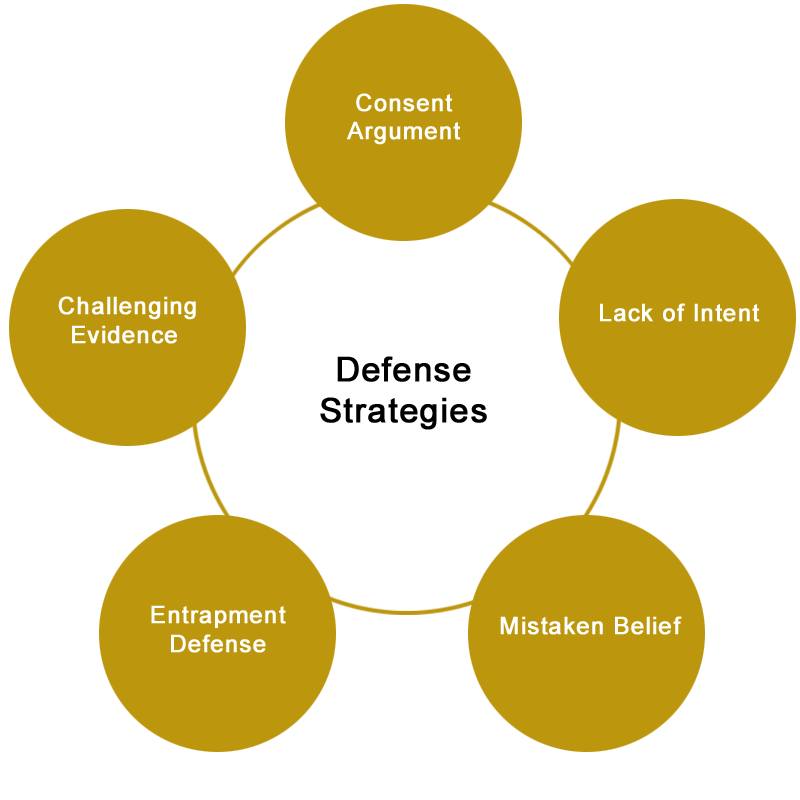In the state of Georgia, even an accusation of solicitation of sodomy can have devastating long-term consequences. Those accused can find their reputation severely damaged, even if the allegations prove false. And a conviction will not only result in jail time, but to an entire lifetime spent as a registered sex offender.
 Taking Proactive Legal Steps
Taking Proactive Legal Steps
If you’ve been accused of solicitation of sodomy, but have not been formally charged, it is vital that you hire an attorney with knowledge of Georgia’s sodomy laws. This proactive first step gives your legal team an early start to investigating your case, gathering evidence and planning your defense. In some instances, they may be able to present evidence to the prosecution discrediting the accusations, helping you avoid facing charges in the first place.
Even if formal charges have been filed against you, it’s not too late to investigate the evidence against you and gather exonerating proof of your own. A conviction is a lifetime sentence on the sex offender registry, so swift action is crucial.
Understanding Sodomy
Even if you have a basic understanding of what sodomy is, it’s important to educate yourself as to the subtleties of the word’s legal definition. The act to which the legal term “sodomy” applies, namely penetrative oral or anal sex, is legal in Georgia if it occurs between two consenting adults. It is when the act occurs in public or without one party’s consent that it becomes a crime, although this wasn’t always the case.
 Solicitation of Sodomy Explained
Solicitation of Sodomy Explained
Given the legal definition of sodomy, an act becomes solicitation of sodomy when one party commends, encourages or simply requests that another party engage in sodomy. Historically, even sodomy between two consenting adults has been illegal – and the language outlawing it still exists in the Georgia statute – but certain protections have been added to the state Constitution to protect them from prosecution.
O.C.G.A. § 16-6-15: Solicitation of Sodomy
That said, Georgia code O.C.G.A. § 16-6-15, presents the solicitation of sodomy as “A person commits the offense of solicitation of sodomy when he solicits another to perform or submit to an act of sodomy.” Securing a conviction for this charge requires that the prosecution prove several elements beyond a reasonable doubt. The first is that the defendant intended to solicit the act. The second is that the solicitation was communicated to the other party either through words, writing or actions. Finally, they must prove that the defendant was aware that the act they were soliciting constituted sodomy.
Those found guilty of soliciting sodomy can potentially face between 1-5 years in prison, with additional penalties that include community service, fines, mandatory counseling, probation and more. Under that same section of the Georgia code, anyone found soliciting sodomy from a minor “shall be guilty of a felony and shall be punished by imprisonment for a period of not less than five nor more than 20 years and shall be fined not less than $2,500.00 nor more than $10,000.00,” with the circumstances of the case determining the consequences.
They may also face registration as a sex offender, restricting where they can live and work for the rest of their life. That’s to say nothing of the personal consequences – being ostracized from family, friends and the community, losing employment opportunities and enduring damage to their reputation. As a reflection of the state of Georgia’s moral and societal standards, these consequences are designed to prevent devious or harmful sexual behavior.
 Defending Against Solicitation of Sodomy Charges
Defending Against Solicitation of Sodomy Charges
There are numerous ways to argue your case to defend yourself against prosecution for solicitation of sodomy. They include arguing that:
- Both parties consented to the act, meaning there was no solicitation.
- The defendant didn’t intend to solicit sodomy, damaging the prosecution’s ability to prove intent beyond reasonable doubt.
- The defendant was mistaken about the legal implications of their actions, either believing the act was legal or that they were soliciting a different, legal, act.
- The communication between parties was unclear or indirect, and thus can’t constitute solicitation.
- Law enforcement entrapped the defendant, enticing them to commit the crime.
- The defendant withdrew their solicitation for sodomy before the act occurred, known as withdrawal.
- The defendant faced coercion or solicited the act under duress, forced to do so to prevent personal harm.
- The defendant was unable to understand their own actions or act with intention owing to a mental condition or diminished capacity.
- There has been a case of mistaken identity, and the defendant was not the person who committed the solicitation.
Beyond arguing against the legal conditions that constitute a solicitation of sodomy, it is also possible to challenge the prosecution’s evidence, supply exculpatory evidence such as an alibi or proof that the accusation was driven by ulterior motives, or question whether law enforcement violated the defendant’s rights. Defending against accusations of solicitation of sodomy is vital, as a conviction can bring with it a lifetime of consequences.
Schedule a Free, Confidential Case Evaluation
If you have been accused of solicitation of sodomy, don’t rely on your own innocence to fully protect you. The prosecution’s job is to secure a conviction, not find the truth, and they will do whatever it takes to achieve that goal. With The Turner Firm on your side, your rights will be protected by decades of experience and by the conviction of some of the legal world’s finest minds, pursuing your defense with tenacity and a willingness to dig deeper to find evidence in your favor. There are no unwinnable cases, and our team will prove that by fighting to have your charges reduced or dismissed. Take a look through some of our example case wins, then get your freedom back by scheduling a free confidential case evaluation with the defense team at The Turner Firm.
